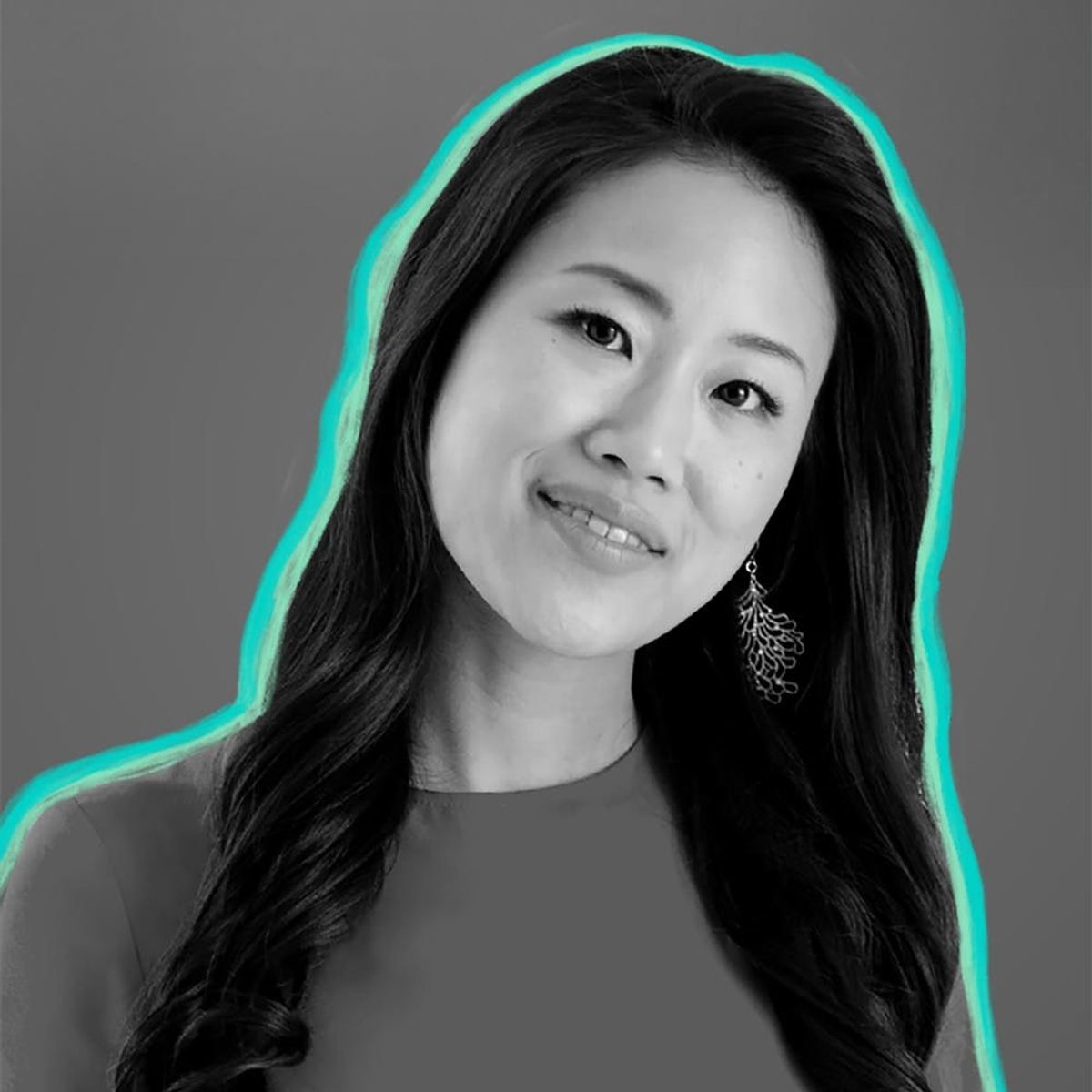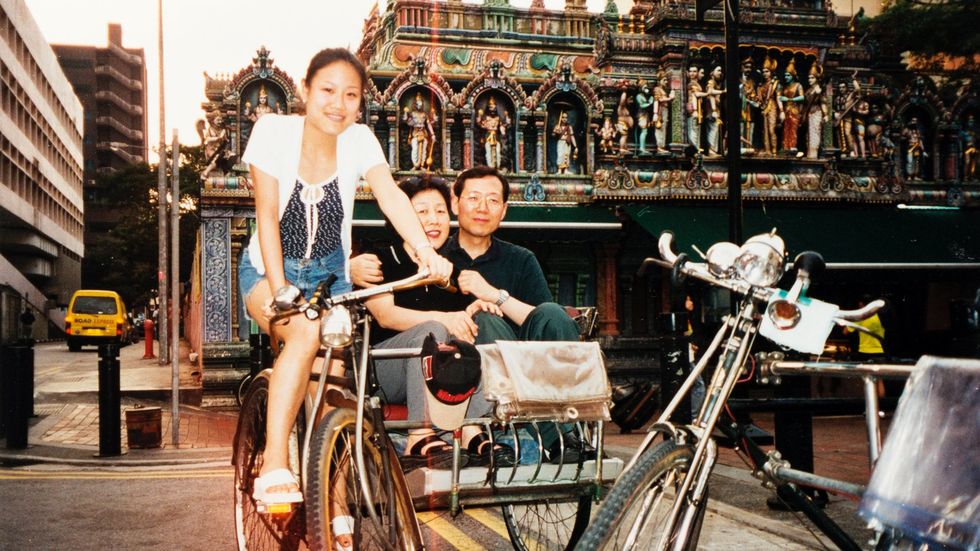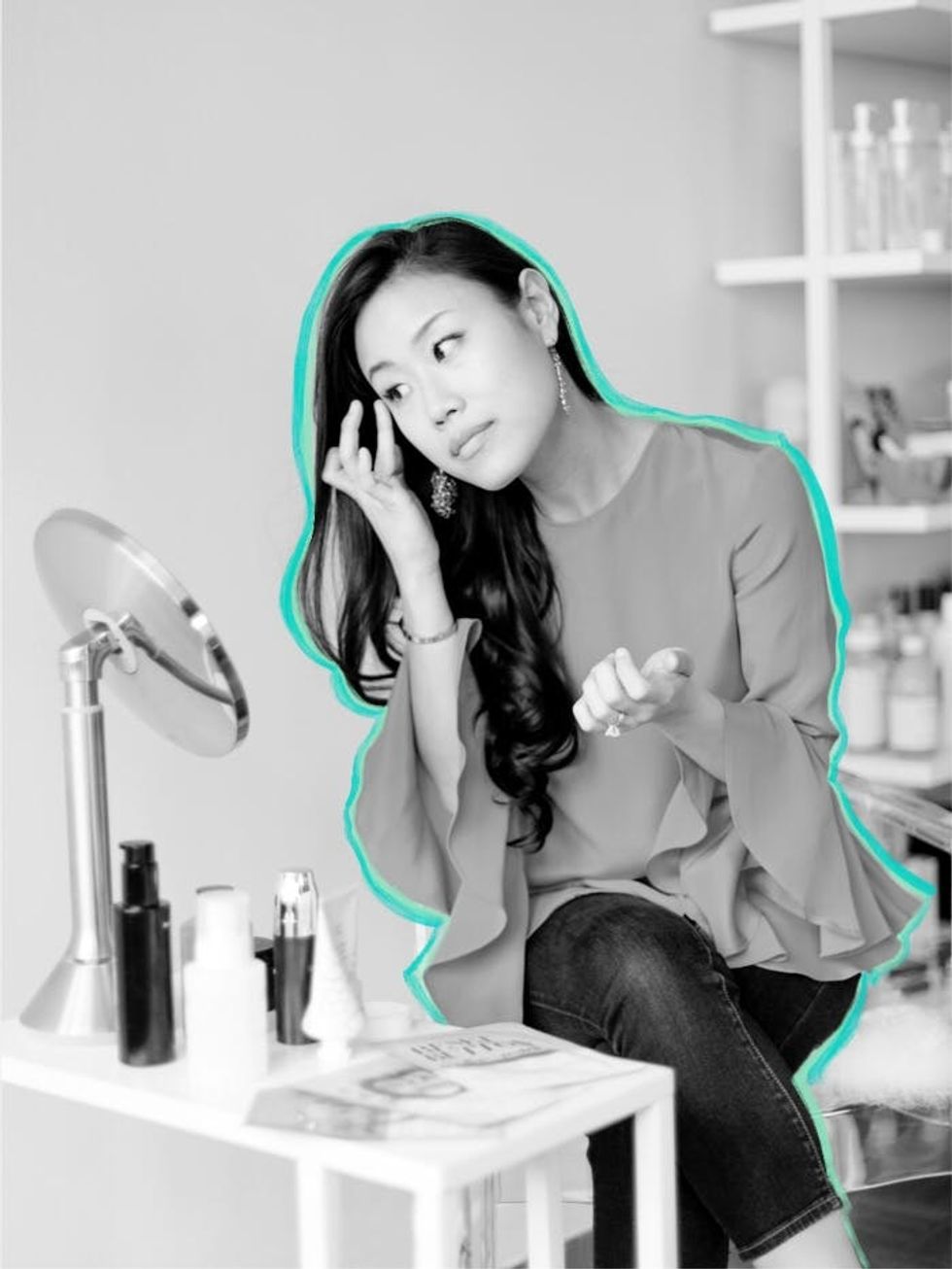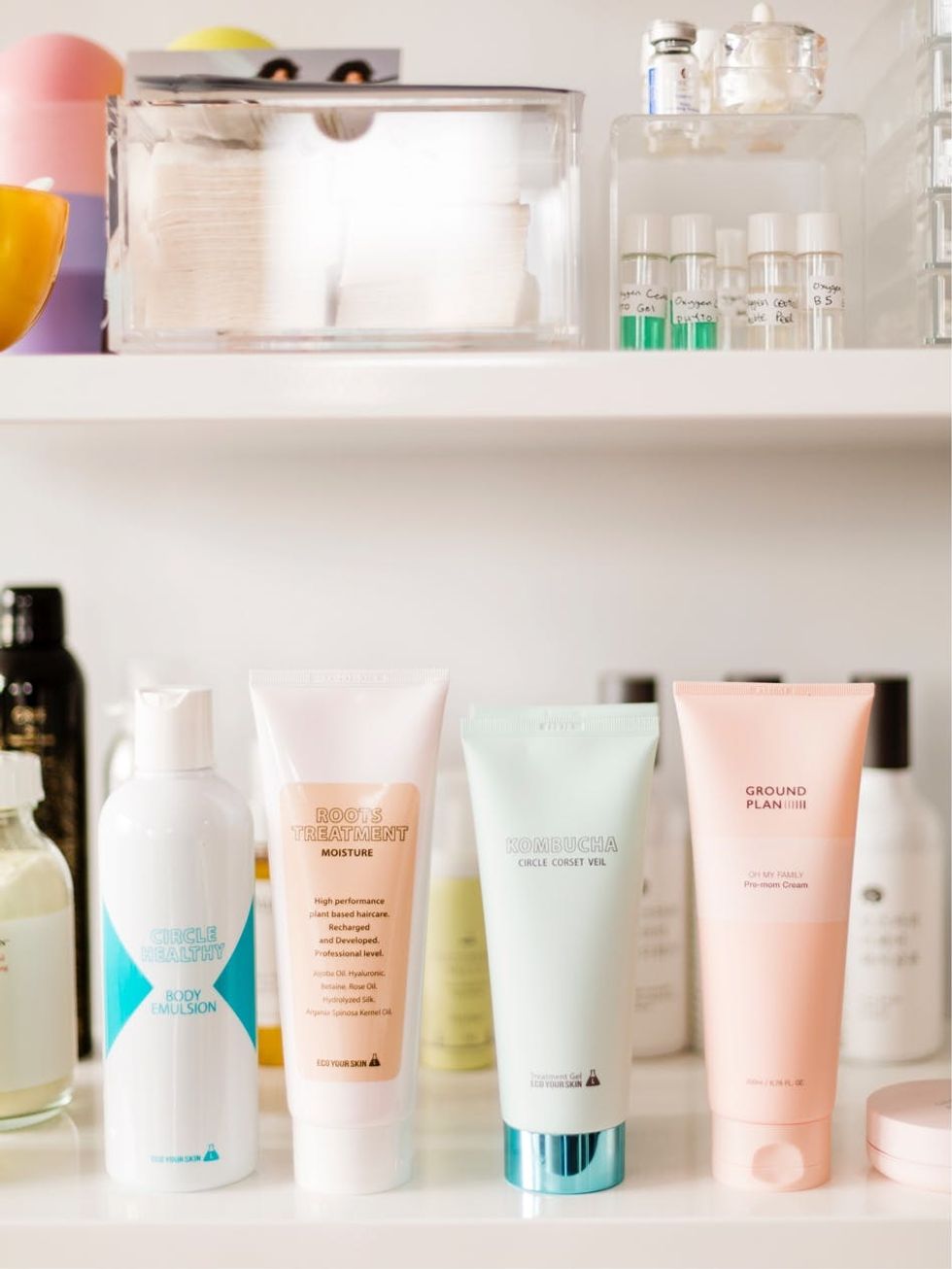Alicia Yoon: The Korean Beauty Pioneer Combining Two Worlds Into One

From the
Outside In
The Stories of Five Creative Immigrant Women
Featuring Alicia Yoon
Read her story
Alicia Yoon is a cultural chameleon. Raised in both South Korea and the US, she has masterfully merged two different worlds by bringing Korea's best beauty products stateside.

Alicia

Yoon
When Alicia Yoon arrives on set at 7:30 AM, she already looks camera-ready. She's been up since 5:00 getting her hair and makeup done. Alicia may be the founder of the mega-successful K-beauty company Peach & Lily, but she's surprisingly gentle, quiet, and gracious (doesn't check her phone once!). At the same time, there's an air of assertiveness about her; her answers are direct and thoughtfully collected. There is a fluid sense of duality that shines through in Yoon's character. It's a trait that can belong only to a person who has experience moving deftly between worlds — and Yoon has plenty of that.
Born in Seoul, South Korea, Yoon initially moved to the states as an infant. Growing up in New York City, she saw herself as an American but was surrounded by Korean culture at home. She knew she was different, but so was everyone else — this was Manhattan in the '80s, after all. She spoke Korean with her parents and ate Korean food for dinner, but she would also regularly tag along to Hebrew school with her childhood best friend. There, she says, she would think, "Well, I'm a little bit different, but we're all American, so that's fine."
Just as Alicia began to hone in on how exactly she fit in in the US, she found herself uprooted once again. At age 12, she and her family made their way back to Seoul. She expected it to feel like going home, but was surprised to find that, even there, she still didn't quite fit in.
Alicia vividly remembers an encounter she had with the taxi driver who drove her family from the Seoul airport to their new home. "He noticed right away that I was not a local Korean," she recalls. She was born there. She spoke Korean without an accent. How did he immediately know she was different? At that moment, she says, "I think I felt a little bit country-orphaned. [If I don't fit in here], well, then where is my home? Where am I ever going to feel like I truly belong?"
As she eased back into Korean culture, she soon understood what that cab driver meant. She laughed with her mouth open, looked people in the eye, and had a strong affinity for personal space — all traits common in Americans but not necessarily in Koreans. Despite the small nuances that initially set her apart, she soon felt back at home in Seoul. With a bustling city at her disposal, she and her friends frequented cafes, pool halls, and karaoke rooms. "It was just a perfect life. I was really happy in Korea."
As her high school years came to a close, a move back west felt imminent. She was more comfortable learning in English, and her parents had high opinions of the personal exploration American universities promoted. She was also tired of the comparably conformist attitudes she noticed in South Korea. And she truly missed the diversity she'd been exposed to as a kid in New York. So, for a second time, she ventured back across the Pacific.
"The American dream means you can be who you are, and all of who you are." #FromOutsideIn

Alicia returned to New York to attend Columbia University, and she remembers feeling a surprising sense of culture shock instead of familiarity. Apparently her time in South Korea had made a lasting mark. She spent much of her college years struggling to feel at home and had a hard time slipping back into her American outspokenness.
But make no mistake — this time in her life didn't suppress her; it defined her. That ping-ponging back and forth between cultures helped strengthen her character. Straddling the two vastly different cultural landscapes throughout her upbringing ended up reinforcing her individual beliefs. She explains, "You really have a more expansive open mind as you're constantly negotiating two different ways to live."
THE BUSINESS OF BEAUTY

In 2008, Alicia enrolled in Harvard Business School. Entrepreneurship ran strong in her class; she lists the founders of Birchbox, Blue Apron, and Bauble Bar as fellow classmates. It was an exciting time in an environment that encouraged startup thinking. But after graduation, Alicia drew a blank when it came to her own million-dollar idea.
Then, inspiration struck unexpectedly. During a consulting project, a client made an offhand remark about Korea having the best skincare products. Having grown up around Korean skincare, Yoon took the diverse range of products and routines she relied on for granted. But after this interaction, she realized her cross-continental upbringing and unique knowledge of both cultures was the perfect springboard for a new kind of beauty business.
Alicia quit her consulting job and decided to focus on launching Peach & Lily, a company that brings the best of Korean beauty products to the United States and beyond. She wants to be clear, though — the brand isn't only focused on the kitschy elements so often associated with K-beauty. Think less sheet masks that make you look like a panda and more serums infused with hyaluronic acid and marine collagen. Her priorities are centered around skincare education and scientific advancements.

"The Korean beauty culture is unlike anywhere else in the world. Skincare is a [way of] life," Alicia explains. Her parents constantly reminded her to pack on the SPF and moisturizer. "There's a very open culture on sharing about skincare [in Korea]. Everybody walks around like they're dermatologists."
"It was very empowering to see that with the right knowledge, I can take care of myself and see results."
That skin-conscious mentality is essentially the core value of Peach & Lily. "The underlying mission [of the brand] is to allow people to have more knowledge and understanding on how to take care of your skin. I think for me, it was very empowering to see that with the right knowledge, I can take care of myself and see results."
Despite the packed schedule that any founder must deal with, she makes it a priority to stay tuned in to industry innovations. Alicia goes back to South Korea almost every month to discover new products and keep up to date with industry advancements. While she's there, she interviews dermatologists, estheticians, makeup artists, celebrities, and editors to find out what they're loving. She'll go to research labs and accompany consumers on shopping trips to see what they're drawn to, and why.
Since launching Peach & Lily five years ago, Alicia has been partially credited with driving America's obsession with K-Beauty, and much of that is due to her dedication to quality. In January, the brand collaborated with Target on a curated selection of products for their beauty department, and also recently announced they're coming to thousands of CVS stores.

Despite her massive success, when we ask Yoon about the proudest moment of her career, she doesn't respond with a revenue win or retail deal. Instead, she talks about mentoring a young designer within her company and watching her grow. "I love our team culture today because it's all about giving people a real shot and having people feel a lot of ownership and empowerment over what they're doing."
It makes sense that a woman who has had to balance two different worlds her entire life takes immense pride in creating a place where talented people can flourish and be themselves.
A NEW AMERICAN
It's been 17 years since Alicia returned to the US. Her husband lives here. Her business is based here. She's now a US citizen. But does it feel like home? For Alicia, it's complicated. She describes home less as a location, and more as an idea.
"It's a place where you feel accepted and safe and you can be yourself, [a place where] there's freedom. So, I mean, for me, home is where family is. As far as countries go, America is my home. I feel — for the most part — very safe, very accepted, and free. But with the recent turn in politics it's kind of the first time I've felt that my home is starting to feel a little unsafe."
Alicia admits she's likely been shielded from any instances of extreme racism by living in a New York City bubble. However, in the Trump era, she is increasingly concerned about the negative portrayal of the immigrant community.



















